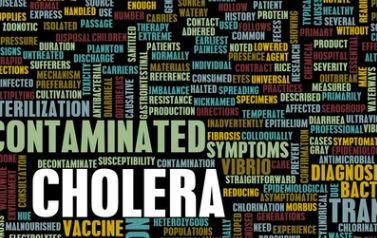BY MALUAL BOL KIIR
The cholera outbreak in South Sudan has escalated into a major public health crisis, particularly affecting Unity and Upper Nile States. With cumulative cases increasing and the death toll rising, urgent and coordinated action is needed to save lives and curb the spread of this preventable disease.
Cholera, a highly contagious illness caused by the ingestion of contaminated food or water, leads to severe diarrhea, dehydration, and, if untreated, death. South Sudan’s limited access to clean water, sanitation, and healthcare creates a breeding ground for the disease, especially in overcrowded Internally Displaced Persons (IDP) camps, informal settlements, and rural communities.
The current crisis: A growing threat
Cholera thrives in regions with inadequate infrastructure, poor hygiene practices, and limited healthcare access. South Sudan, already burdened by years of conflict and underfunded health systems, is ill-prepared to tackle the outbreak without immediate intervention. According to the World Health Organization (WHO), such conditions make rapid transmission inevitable unless addressed promptly and comprehensively.
Key areas for urgent action
1. Rapid health response
Immediate measures must be implemented to diagnose, treat, and manage cholera cases effectively:
• Establish cholera treatment centers in affected regions.
• Ensure the availability of essential supplies such as Oral Rehydration Salts (ORS), intravenous fluids, and antibiotics.
• Deploy mobile clinics and rapid-response health teams to underserved and remote communities.
2. Strengthening water, sanitation, and hygiene (WASH) infrastructure
To combat the root causes of the outbreak, robust WASH interventions are essential:
• Chlorinate water sources and ensure the availability of safe drinking water in affected areas.
• Distribute water purification tablets and storage containers to households.
• Construct and maintain emergency latrines in IDP camps and other high-risk areas.
• Promote hygiene practices such as handwashing with soap and safe food preparation methods.
3. Community education and awareness
Raising public awareness is critical to preventing the further spread of cholera:
• Launch public health campaigns using local languages and culturally relevant messaging.
• Engage community leaders, youth groups, and civil society organizations to educate communities on hygiene practices.
• Encourage early reporting of symptoms and prompt medical treatment.
4. Focus on IDP Camps and vulnerable communities
Overcrowded and unsanitary conditions in IDP camps and informal settlements require targeted interventions:
• Improve living conditions and sanitation services in these areas.
• Provide resources to ensure access to clean water and safe waste disposal.
The role of key stakeholders
Government leadership
The Government of South Sudan must take decisive action by:
• Declaring the outbreak a national emergency to mobilize resources and international support.
• Allocating funding for health interventions and strengthening collaboration with international partners.
• Ensuring transparency and accountability in resource management.
International partners and humanitarian organizations
Organizations like WHO, UNICEF and Médecins Sans Frontières (MSF) play a vital role in providing technical expertise, funding, and logistical support. Coordinated action among international partners is essential to ensure a timely and effective response.
Civil society and youth leadership
Civil society organizations and youth leaders are crucial in engaging local communities, spreading awareness, and implementing grassroots solutions. Youth groups, as changemakers, should actively promote prevention measures and participate in response efforts.
Building long-term resilience
While addressing the immediate outbreak is critical, South Sudan must also focus on long-term strategies to prevent future cholera outbreaks. Sustainable investments in healthcare and infrastructure are essential:
• Strengthen healthcare facilities to improve disease surveillance and emergency response.
• Expand clean water supply networks for urban, rural, and displaced populations.
• Integrate public health education into national development plans.
Conclusion: A unified response to save lives
The cholera outbreak in South Sudan is a stark reminder of the urgent need for coordinated action. Every day without intervention increases the loss of life and deepens the strain on vulnerable communities. By working together — government, international partners, civil society, and youth — this crisis can be mitigated.
Cholera is preventable, and with immediate action to address both its symptoms and root causes, South Sudan can build a stronger, more resilient health system. The time to act is now because every life saved is a step toward progress and a brighter future for all.
The writer is a South Sudanese peacebuilder, human rights activist, and youth advocate committed to fostering sustainable development and improving the lives of marginalized communities. He can be reached at malualbk2005@gmail.com.
The views expressed in ‘opinion’ articles published by Radio Tamazuj are solely those of the writer. The veracity of any claims made is the responsibility of the author, not Radio Tamazuj.




